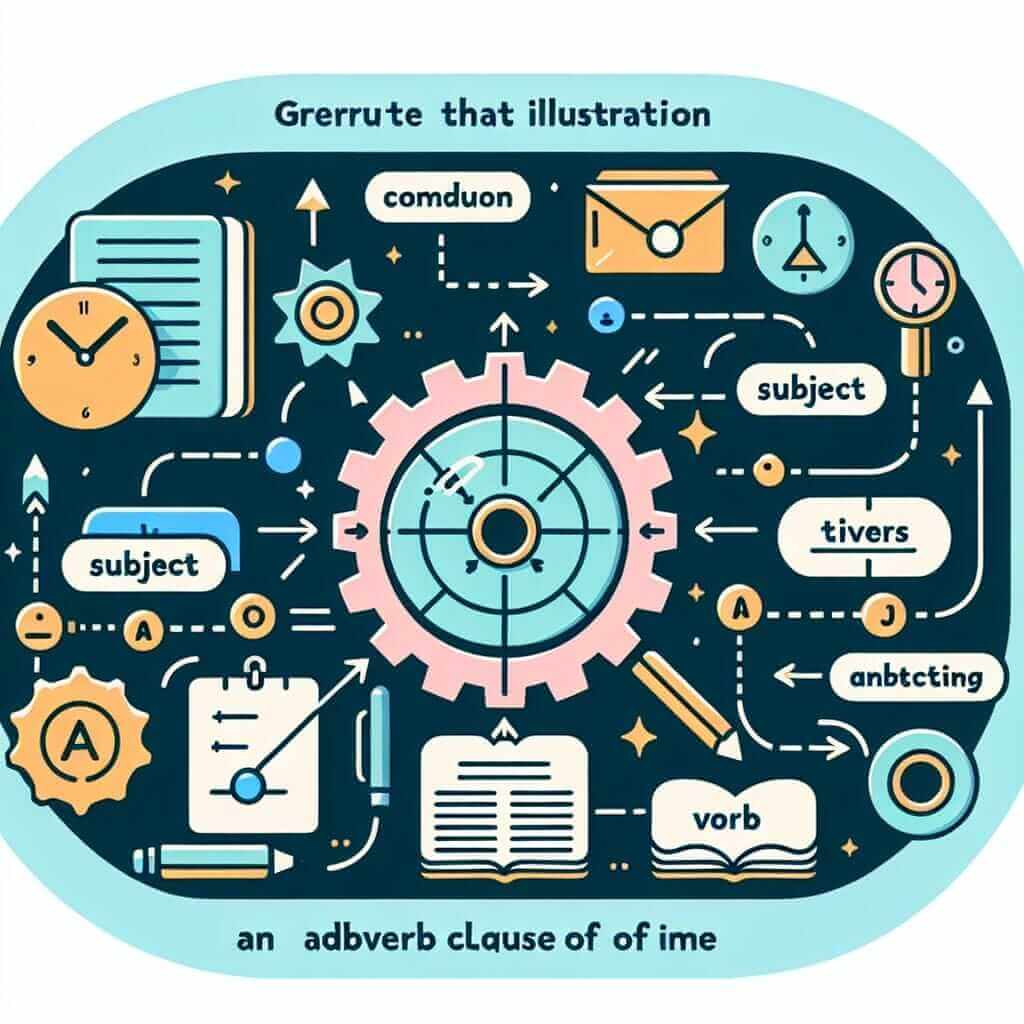Adverb clauses of time, especially those beginning with “whenever” and “as long as”, are powerful tools for expressing the relationship between different actions or events in your IELTS speaking and writing. Mastering their use can significantly enhance your grammatical range and accuracy, contributing to a higher band score. Let’s look at some examples of how these clauses might appear across different sections of the IELTS:
Speaking:
- “Whenever I travel, I always try to learn a few local phrases.” (Here, the adverb clause highlights a recurring action in the past.)
- “I plan to keep studying English as long as it takes to get the score I need.” (This example showcases the use of “as long as” to indicate duration in the future.)
Writing Task 1 (describing a process):
- “After the coffee beans are harvested, they are dried in the sun.”
Writing Task 2:
- “Individuals can make a difference in the fight against climate change whenever they adopt sustainable practices.” (This statement uses “whenever” to emphasize the flexible timing of these actions.)
- “Governments should invest in renewable energy sources as long as fossil fuels continue to pollute the planet.” (This sentence employs “as long as” to highlight a conditional duration in the future.)
These examples demonstrate the adaptability of adverb clauses of time across various contexts and tenses, a key feature that makes them valuable for IELTS success.
Understanding Adverb Clauses of Time
Before diving into the specifics of “whenever” and “as long as”, let’s solidify our understanding of adverb clauses of time. These clauses function as adverbs, modifying verbs, adjectives, or other adverbs within a sentence. They answer questions like “when?”, “how long?”, or “how often?” about the main action described in the sentence.
Here’s a breakdown:
- They are dependent clauses: This means they cannot stand alone as a complete sentence and need to be attached to an independent clause (a complete thought).
- Structure: They typically follow the structure: Subordinating Conjunction + Subject + Verb.
 Adverb Clause of Time Example
Adverb Clause of Time Example
“Whenever” – Indicating Repeated or Habitual Actions
“Whenever” is used to introduce an adverb clause that describes an action that happens repeatedly or habitually. It emphasizes the idea of “no matter when” or “every time” something else occurs.
Using “Whenever”
Formula: Whenever + Subject + Verb (present tense), Main Clause
IELTS Application: Use “whenever” to talk about:
- Habits or routines: “Whenever I feel stressed, I listen to calming music.”
- General truths or scientific facts: “Water boils whenever its temperature reaches 100 degrees Celsius.”
Example:
“Whenever I visit a new city, I make sure to try the local cuisine.”
Analysis: This sentence effectively uses “whenever” to show a repeated action (trying local cuisine) that occurs every time the speaker visits a new city.
“As Long As” – Expressing Duration and Condition
“As long as” signals that an action or situation will continue for a specific period, often dependent on a condition being met.
Using “As Long As”
Formula: Main Clause + as long as + Subject + Verb
IELTS Application: Utilize “as long as” to:
- State conditions: “You can borrow my notes as long as you promise to return them tomorrow.”
- Emphasize duration: “The government will provide financial aid as long as the economic crisis persists.”
Example:
“Many species of animals can thrive in captivity as long as they are provided with a suitable environment.”
Analysis: The sentence uses “as long as” to highlight a condition (providing a suitable environment) that is necessary for the main clause (animals thriving in captivity) to be true.
Common Errors to Avoid
- Subject-Verb Agreement: Ensure the verb in your adverb clause agrees with its subject.
- Incorrect: Whenever I visit my grandparents, they gives me cookies.
- Correct: Whenever I visit my grandparents, they give me cookies.
- Comma Usage: If the adverb clause comes before the main clause, use a comma to separate them.
- Incorrect: As long as you study hard you will succeed.
- Correct: As long as you study hard, you will succeed.
- Overuse: While useful, don’t overuse these clauses. Strive for sentence variety.
Conclusion
Mastering adverb clauses of time like those beginning with “whenever” and “as long as” can significantly enhance the clarity and sophistication of your IELTS responses. Remember to pay attention to subject-verb agreement, comma usage, and avoid overuse. With practice, you can confidently incorporate these clauses to demonstrate your command of complex grammar and boost your overall band score.


